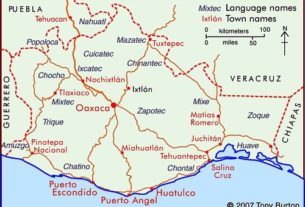Westwords

The September 13, 1847 capture of Chapultepec Castle by U.S. Marines made a paragraph in a MexConnect listing of significant events by geographer, historian and all-around good guy Tony Burton.
This was war. Fighting had reached Mexico City. Men were dying. Generals surrendered but there were numerous acts of bravery, including the celebrated stand by the “Child Heroes”, which, Tony said, some modern historians believe never happened.
Oh my. Sorry to hear that, Tony. Disturbing to think that this very good story might be switched from fact to fiction.
Mexico has many myths but this was a wonderful truth, six military academy cadets, in defiance of Gen. Nicholas Bravo’s order to retreat, choosing to fight to the finish. They were lieutenant Juan de la Barrera, 20, Agustin Melgar, Vicente Suarez, Francisco Marquez, Fernando Montes de Oca and Juan Escutia. One by one they were struck down.
When all was obviously lost and their tattered flag was destined to fall, Escutia, 17, proudly took it down, wrapped himself in it and jumped from the castle point.
Legend has it that when the smoke cleared and the American commander was surveying the carnage around the old fort, he spotted the body wrapped in the flag and saluted. Warriors respect patriotism.
Most Mexicans know about the war and what was lost and how the young cadets refused to run. It is an elementary school lesson. Children memorize the names. Streets, parks, schools and squares throughout the country keep them alive. Their images have been stamped and preserved on Mexican money.
Fathers still take sons to see their monument in Chapultepec Park. I suppose some shed a tear. Los Niños Heroes are from a terrible time in Mexican history.
The country, newly independent, was weak, disorganized, bickering politically, struggling economically and grappling with the church. Along came the ambitious, prospering United States to take cruel advantage.
U.S. President James K. Polk saw America as a morally correct nation expanding westward and veering a few feet south. To Mexicans, it was an awful invasion.
The war was a mismatch. Some Mexican leaders were far more motivated for political gains than national defense. The army was short on resources and organization. Instead of supply teams, Mexico looked to women who followed the troops to provide food.
Lack of medical support was demoralizing. It meant the wounded were often left behind.
Compared to that chaos, the United States had a professional volunteer army, even horse-drawn artillery. Mexico didn’t have a firearms factory and tried to get by with European discards.
The fight was not very popular. Some areas just weren’t interested. Everybody thought the invasion was unjust but violence was traumatic and so discouraging.
The Treaty of Guadalupe Hidalgo ended the war, forfeited control of Texas and established the border of the Rio Grande River. Mexico ceded what became California, Nevada, Utah, and parts of Colorado, Arizona, New Mexico and Wyoming and received $15 million U.S. dollars as compensation.
That was less than half what had been offered when people in high places were talking about a nice, friendly, all-cash real estate transaction. Mexico said no.
Eventually there was an actual sale. Antonio Lopez de Santa Anna accepted $10 million more for the Mesilla Valley in lower New Mexico and Arizona. History can be harsh.
There is little dispute about the cold, hard facts. Nobel laureate Octavio Paz said it was “one of the most unjust wars of conquest in history.”
Abraham Lincoln, in an address before the U.S. Congress, said President Polk had “unnecessarily and unconstitutionally commenced a war with Mexico.”
Only the post-war spin was different. Mexicans believed half their country had been captured and taken. Americans, not all that excited about continuing discussion, claimed the 500,000 square miles had been bought and here are the receipts.
Mexicans said it was worse than a crooked deal, it was a cruel conquest. Americans seized that word and asked how Mexico became Mexico. The original Aztec empire was a product of conquest, the strong taking from the weak.
Now we know words can be a game of Scrabble, going all the way back to the Chapultepec Castle and los Niños Heroes.
Children is a misnomer. The cadets were young men. But there is nothing wrong with the word heroes — unless Tony concludes the whole deal is a myth.


